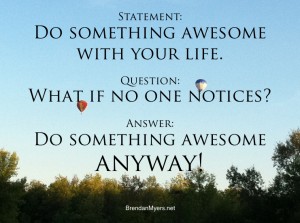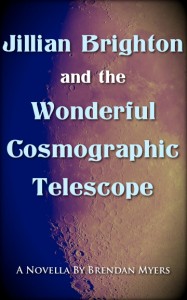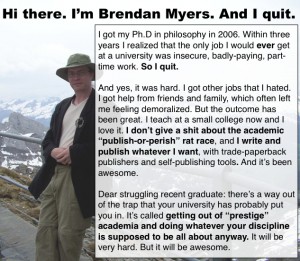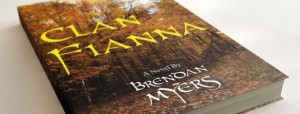I’ve been watching Doctor Who since I was small – Tom Baker was my Doctor. So the 50th Anniversary of Doctor Who got me thinking: what is this complicated, wonderful, beautiful, and very very weird show all about? I’ve settled on four themes. There might be more, of course, but this blog post got to 2,700 words so I thought it best to stop at four. So here we go:
Childhood Wonder
The doctor is always curious and excited to see new things, and discovering new life forms and new worlds always fills him with delight. Even when faced with great danger, the doctor sometimes still finds something to delight about. For instance, in one such situation, Doctor Baker* said,
That’s intensely interesting. Do you realize there’s nowhere to go? We’re on the edge of the cosmos, the frontiers of creation, the boundary between what is and isn’t. Or isn’t yet, anyway. Don’t you think that’s interesting? I feel just like a goldfish looking out on a new world.
Similarly, Doctor Pertwee told a companion “Before you start annihilating the thing, why don’t we just take a look at it?” And doctor Eccleston once chastizes a group of soldiers for shooting and killing an alien creature instead of looking at it properly: had they looked closer, they would see it was only frightened, and wasn’t threatening anyone.
This unrepressable curiosity sometimes appears as madness to his companions: and he has sometimes capitalized on this perception of him. For instance, Doctor Hartnell told his granddaughter: “You know, Susan, I think your old grandfather is going just a tiny little bit around the bend.” Similarly, Doctor Smith says to his companion Amy Pond: “there is something you need to understand, and someday your life may depend on it: I am definitely a madman with a box.” On another occasion, when someone tells him he’s basically crazy, Doctor Smith dons a sly grin and says, “I know.”
In the light of this, I find it very, very interesting that some of Doctor Hurt’s** lines seemed to deliberately subvert the childhood wonder theme. He chastizes both Smith and Tennant for their signature boyish battle-cries “Allonz-y!” and “Geronimo!” by saying in response, in a kind of condescending tone: “Oh for god’s sake!” He had chastized them both previously with his heavily judgmental question: “what is it that makes you so ashamed of being a grownup?” The question is interesting in two ways. One is that the grownup doctor in the scene is also contemplating committing a war crime of almost unimaginable proportions: the genocide of two entire races, one of which is his own. And the other two doctors know it. And they don’t want to do that terrible thing ever again.
The other interesting thing about Doctor Hurt’s cutting question is we, in the audience, are invited to answer it. Doctor Who is, among other things, a kind of fairy tale about a flamboyant mysterious man who takes us on fantastic adventures in faraway places, and solves whatever problems we might find there. And the story is often told in the mode of melodrama: with our heroes ever in extraordinary danger, an overall heightened sense of emotional intensity, a “stock character” (the Doctor himself, who is so ‘stock’ that he doesn’t even have a proper name, just a title) and sometimes “stock” antagonists (like the unambiguously evil Daleks). And, true to the melodrama style, there’s a musical score to accompany the story! Audiences love that sort of thing. But this is the dramatic model best suited to a children’s story. What is so terrible about an adult story? Why does Doctor Who rarely see morally ambiguous heroes, or morally sympathetic villains, or other not-melodramatic, definitely adult problems?
To which it might be replied: we sometimes do see villains who are motivated by something noble, even if their methods for attaining that goal are deeply evil. The Rani, for instance, is motivated by scientific inquiry, and so she is a kind of foil to the doctor himself. But this is an exception, not a rule. The most consistent villains, such as the Cybermen, the Master, the Great Intelligence, and of course the Daleks, are motivated by straightforward antisocial sentiments like total-conformity, revenge, power-madness, and hate.
Also, I understand that this is a question the show’s producers sometimes struggle with: the question of whether Doctor Who is a children’s show or whether it’s a drama series for adults, with adult themes. The show sometimes does address serious moral dilemmas and adult-world problems. We’ve seen the Doctor grapple with the question of genocide before: in the 1975 serial “Genesis of the Daleks” Doctor Baker is given the chance to wipe out all Daleks by going back in time and interfering with the events of their creation. But he doesn’t do it: he decides that no one has the right to wield that kind of power. That’s an adult story. Similarly, we have seen a few occasions when the doctor shows us the guilt and the loneliness that visited him after his decision to exterminate the Daleks (!) at the cost of doing the same to his own people. Guilt and loneliness are very adult themes for a drama. But these occasions were often quickly covered up by the character’s irrepressable cheerfulness, and the urgency of whatever problem he was facing at that time. And I think that’s too bad, really: morally ambiguous heroes and sympathetic villains are interesting, and audiences enjoy their stories as much, if not more, than they enjoy the simple pastel colours of the melodrama. (If I may be so bold: if I had a chance to write an episode of Doctor Who, I’d write a story that creates the right harmony of childhood wonder and adult moral complexity.)
But enough of my critical comments for now. Here’s another theme, curiously connected with the theme of childhood wonder, while at the same time being an ‘adult’ theme:
Science and rationality.
It’s in the nature of the show, especially since Moffatt took over as its director, to find ordinary things and makes them scary. Shadows. Mirrors. Cracks in the wall. Wifi networks. Storefront mannequins. Statues. Children wearing gas masks. The upstairs neighbour. Little black boxes. This enchantment of the ordinary, even in the mode of terror, is a major feature of fairy tales. And as mentioned, Doctor Who is a kind of fairy tale. So, we’re supposed to find those things scary. But the doctor always wants to figure out the solutions to problems, and he’s never satisfied to let mysteries remain mysteries. “To the rational mind, nothing is inexplicable, only unexplained,” said Doctor Baker. And similarly, Doctor Hartnell said, “You wanted advice, you said. I never give it – never. But I might just say this: always search for truth.” And Doctor McCoy reminds us to find what’s interesting in everything: “Nothing’s just rubbish if you have an inquiring mind.” This commitment to science inspires his friends. This is why Leela, who originally came from a pre-industrial society, says: “I, too, used to believe in magic, but the Doctor has taught me to believe in science. It is better to believe in science.” This should inspire us too.
All the problems the doctor meets, including all the apparently supernatural forces, turn out to have scientific explanations. Of course, those explanations are often of the science fiction variety: aliens, time travel paradoxes, futuristic technology. Thus the explanation often turns out to be the kind of science which, in the thinking of Arthur C. Clarke, is advanced enough to be indistinguishable from magic. And so our sense of childhood wonder is preserved. But the point is that these threatening forces have explanations. We do not have to just accept mysteries as mysteries. We get to pull the curtain back and see what’s behind it. I’d go so far as to say that the Whoniverse might be a “Republic of Heaven”, to borrow Philip Pullman’s terms.
In fact, the Doctor’s superior knowledge, his advanced quasi-magical technology, and so on, is enough to make him an almost godlike hero. Some of the other characters certainly see him that way: Tim Latimer says of him that “He’s like fire and ice and rage. He’s like the night and the storm in the heart of the sun… He’s ancient and forever. He burns at the centre of time and can see the turn of the universe… and he’s wonderful.” And Martha Jones described him as follows: “…his name is The Doctor. He has saved your lives so many times and you never even knew he was there. He never stops. He never stays. He never asks to be thanked. But I’ve seen him, I know him. I love him. And I know what he can do.”
Indeed, the doctor is so powerful that in several episodes he’s able to fend off alien threats like the Atraxis, the Vashta Nerada, the Cybermen, and even an entire fleet of alien battleships, by appealing to his reputation! That fleet of battleships had actually united their forces to imprison him in the Pandoricon: a fact the Doctor didn’t know at the time. So on second viewing, that scene has a certain irony. But their assembly in the first place was all about his reputation: they were imprisoning him because they thought he was the most dangerous being in the universe.
But back to the point about knowledge. Doctor Smith, in one of his best moments, reveals just how deep his knowledge goes:
I have lived a long life, and I have seen a few things. I walked away from the last Great Time War. I marked the passing of the Time Lords. I saw the birth of the universe and I watched as time ran out, moment by moment, until nothing remained- no time, no space, just me! I walked in universes where the laws of physics were devised by the mind of a mad man. And I’ve watched universes freeze, and creation burn — I have seen things you wouldn’t believe, and I have lost things you will never understand. And I know things. Secrets that must never be told. Knowledge that must never be spoken! Knowledge that will make parasite gods blaze!”
What’s interesting about this speech is the way it condemns a false god as a parasite, while at the same time the doctor describes himself in surprisingly godlike terms. It probably helps that the scene is filmed in a highly melodramatic style. We should hope that a man as powerful as the doctor is on our side. And fortunately, he is. And this is partly because the doctor’s companions frequently hold him back from assuming godlike rights and powers. Donna says to him that he needs companions because, as she tells him, “sometimes you need someone to stop you.” And she’s right.
Besides, Doctor Ecclestone warns us not to treat him as a god: “Don’t worship me. I’d make a very bad god. Wouldn’t get a day off, for starters.”
There’s two more themes that reassure us that he’s on our side:
Non-violence
Another aspect of the doctor’s commitment to rationality is the way he prefers to solve problems by persuasion instead of by violence. In any situation, the doctor is always the one with the most knowledge and the most cleverness: this is his advantage, not his capacity for violence. Doctor Troughton despaired for the prevalence of violence when he said how sad it was that “People spend all their time making nice things, and other people come along and break them.” Instead of threatening an enemy, he will try to show that enemy a new fact or a new possibility that he (or it) might not have considered, or might not have known about. He tries to find the solution that’s best for everyone. An example of this occurred in the 50th anniversary special when doctors Smith and Tennant say that the best negotiations happen when no one knows what side they’re on, and so the doctors manipulate the memories of two characters such that neither knows which of them is a shape-shifting alien trying to take over the other one’s planet. As an aside, that moment is the best depiction of John Rawls’ “Original Position / Veil of Ignorance” thought experiment that I’ve ever seen in pop culture.
Doctor Baker’s famous lines about guns expresses the character’s preference for persuasion and rationality over violence: he says, “Have you noticed that people’s intellectual curiosity declines sharply the moment they start waving guns about?” And Doctor Baker (the second) said of guns: “No thanks, I’ve given them up. Guns can seriously damage your health, you know.” (This line reminds me of the Goon Show, a BBC radio comedy and predecessor of Monty Python, but never mind that for now.) It’s also noteworthy that the doctor himself doesn’t usually show aggression unless someone interferes with his attempt to find the best solution for everyone. On such occasions, however, his anger and his means of punishment can be very, very severe. That’s where his godlike side comes out: and again, that’s why he needs his companions.
Humanism
For me, the most outstanding theme in the whole series, right from the very beginning, is a kind of humanism – that is, optimism about humanity’s future, and confidence in humanity’s natural goodness. This theme has been repeated many times in the series. My favourite statement of this humanism is in Doctor Baker’s words in “The Ark in Space”:
Homo sapiens… What an inventive, invincible species. It’s only a few million years since they crawled up out of the mud and learned to walk. Puny, defenseless bipeds. They’ve survived flood, famine, and plague. They’ve survived cosmic wars and holocausts. And now, here they are, out among the stars, waiting to begin a new life, ready to out-sit eternity. They’re indomitable. Indomitable!”
And to reinforce this theme, Doctor Eccleston reaffirms it in the very first episode of the new (2006) series. While arguing with the Nestene Consciousness, who was trying to take over the earth, he appeals to humanity’s potential for greatness: “This planet is just starting. These stupid people have only just learned how to walk, but they’re capable of so much more.” Actually, the doctor’s interest in humanity is part of his larger interest in life in general, as we hear in Doctor Troughton’s words: “No, Mr. Terrall, I am not a student of human nature. I am a professor of a far wider academy of which human nature is only a part. All forms of life interest me.”
Doctor Eccleston is sometimes cynical and judgmental of people; he calls us “stupid apes” several times. But he loves us for all our faults, just the same: the overwhelming attitude is that of confidence in humanity. “It might be irrational of me, but human beings are quite my favourite species,” said Doctor Baker. Similarly, Doctor Eccleston said that an ordinary man is the most important thing in the universe. This confidence in humanity is so important to the doctor, that River Song is moved to say of him: “Everybody knows that everybody dies and nobody knows it like the Doctor. But I do think that all the skies of all the worlds might just turn dark if he ever for one moment, accepts it.”
We live in a time when so many social, cultural, religious, political, and personal values are changing. Very few people believe that there’s such a thing as an absolute truth about anything: we trivialize good questions by saying things like “That depends,” or we dismiss good ideas by saying “That’s just your opinion”. Or if you’re an academic you might dismiss an argument by saying “That’s anthropocentrism”. In that sense, Doctor Who is a surprisingly modern rather than post-modern show. It stands for a number of definite values, foremost among them values like the one’s I’ve just described: childhood wonder, science and rationality, nonviolence, and humanism.
And now, Doctor Capaldi would seem to have a new mission: to find Gallifrey. These are the values that will shield and uphold him on his quest. I hope he succeeds: if Gallifrey is a place where those values are honoured, I’d like to find it, too.
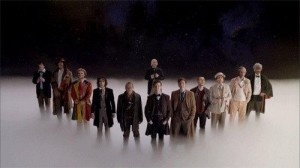
Notes
* I’m naming the doctors by the actor’s names instead of by the usual convention of their numbers in order of broadcast. This is because there’s now some doubt among fans about whether John Hurt’s portrayal of the character is a “doctor” or not, and thus it’s hard to place him in the usual numbering scheme. But I also do this as a sign of respect to the actors. They are not numbers: they are men, actors, artists, human beings; and I think they deserve acknowledgement as such.
** I’m calling him “Doctor Hurt” because he’s played by John Hurt, and because he’s the incarnation of our hero who decided to give up the name of Doctor to become a warrior – ie. one who hurts people (!), instead of heals them, although presumably for the sake of a noble cause. I know that the character himself rejected the name. I’m calling him Doctor anyway because at the end of “Day of the Doctor”, he earned a kind of redemption, and doctors Tennant and Smith addressed him as Doctor. If their word isn’t good enough, I don’t know whose is.

